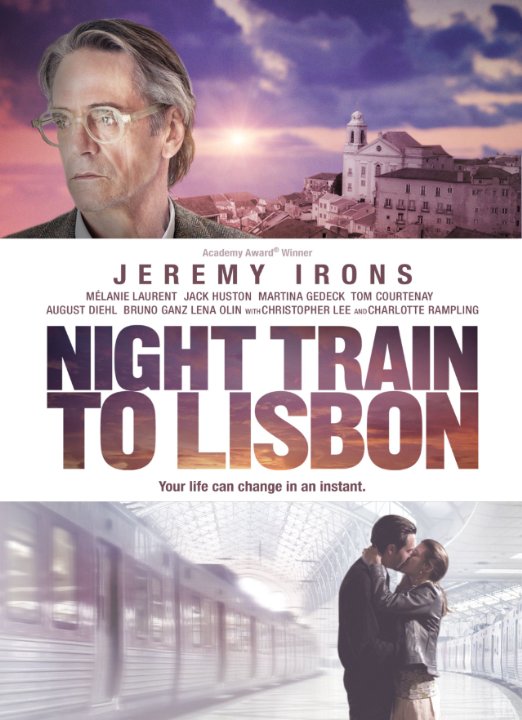Night Train to Lisbon

The potential enjoyment of Billie August’s Night Train to Lisbon is hinged on the notion that we are as fascinated with the story of Amadeu de Prado as our protagonist. Unfortunately this does not ring true throughout the film.
as our protagonist. Unfortunately this does not ring true throughout the film.
This story follows the journey of a modern day classics professor as he finds himself on an adventure discovering the life of an unknown philosopher/doctor, and on the way, finds himself. Played by Jeremy Irons, Professor Raimund Gregorius comes across a book with a ticket to Lisbon tucked inside while saving a girl from jumping off a bridge. So enthralled in the philosophical writing, he travels to Portugal and attempts to uncover the life of author, Amadeu de Prado. The story is revealed through his encounters with others involved in the story and extended flashbacks.
He discovers that the author was part of the Portuguese resistance in the early 1970s. The constant change of pace from the modern day meanderings and perhaps more high energy flashbacks meant that neither stories felt worth investing in. It was very much two films in one, with both lacking momentum for the first half. Irons’ performance was passable as essentially a narrator figure, but with added unnecessary character points. One scene saw him mention that his wife left him because he was boring, and this is disputed by his optician and lady-friend Mariana (Martina Gedeck), but after 110 minutes of philosophical grumblings about humanity and freedom, it’s hard to disagree.
The story of the author against the background of revolution is definitely the redeeming factor of this film, as the Lisbon they are in is such a contrast to the sleepy Lisbon we find in the modern day. But for a film rife with revolution, it lacked any semblance of danger. Even here, a love triangle is the main cause of tension, not an uprising. This movie, based on a novel of the same name, could have been set in any revolution of the 20th century. This film calls itself a thriller, but it is essentially a basic love story.
With a veteran cast including Christopher Lee and Charlotte Rampling, you would think the performances made up for the lack of momentum, and to some extent, they did. Although there was something missing in this film, it isn’t unwatchable. As much as it relies heavily on philosophical narration to clue us in on the inner workings of our characters, it is not heavy in any way, perhaps to its own detriment.
Andriana Hambi
Night Train to Lisbon is released nationwide on 24th October 2014.
Watch the trailer for Night Train to Lisbon here:



















Facebook
Twitter
Instagram
YouTube
RSS